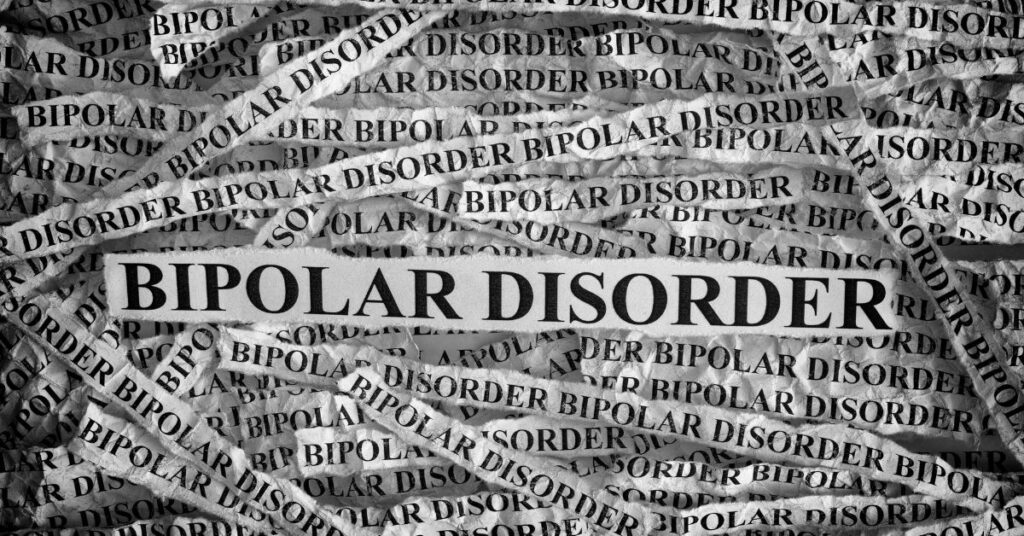Introduction
Diagnosing bipolar disorder is a process that should be led by a qualified psychiatrist. It is important to understand how a bipolar diagnosis comes about, what to expect and what it means for you as the patient.
Read on to find out everything you need to know about the diagnostic process when it comes to bipolar disorder.
What is bipolar
Bipolar disorder is a mental health condition characterised by extreme mood swings, including periods of elevated mood (mania or hypomania) and periods of depressed mood. It can be a difficult condition to diagnose, as it can be easily mistaken for other mental health conditions or misdiagnosed as depression.
The steps to take
Either you or someone around you might notice that you are unwell due to a variety of symptoms and behaviours that are causing problems in your daily life.
If you suspect that you or a loved one may have bipolar disorder, it is important to seek help from a mental health professional.
Here are the steps to take in order to receive a proper diagnosis:
- Schedule an appointment with a mental health professional: This can be a psychiatrist, psychologist, or other licensed mental health provider. However, a psychologist or other mental health professional can’t diagnose bipolar and will refer you to a psychiatrist if they suspect you have the condition. The final diagnosis of bipolar disorder should always be made by a qualified psychiatrist. Although you may research your symptoms on the internet, this is never a substitute for a proper consultation with a psychiatrist.
- Discuss your symptoms: During the consultation, your psychiatrist will ask you detailed questions. Be honest and open about your symptoms, including any mood swings, changes in energy levels and any other symptoms you may be experiencing. It can also be helpful to keep a mood diary to track your moods and any triggers that may be causing them. Your psychiatrist will need as much information as possible in order to make a correct diagnosis and it is your responsibility to be completely truthful during your sessions. Sometimes, your psychiatrist will also ask your family and friends questions about you and your behaviour to identify things that you may be unable to see yourself.
- Undergo a physical examination: Your mental health professional will likely recommend a physical examination to rule out any medical conditions that may be causing your symptoms. Again, it is important to be completely honest during your consultation with the medical doctor.
- Meet the diagnostic criteria: In order to receive a diagnosis of bipolar disorder, your mental health professional will need to determine that you meet the diagnostic criteria outlined in the DSM-5 (the diagnostic manual for mental health conditions). This includes experiencing at least one episode of mania or hypomania, as well as periods of depressed mood.
- Consider other conditions: It is important to consider other mental health conditions that may be causing your symptoms, as bipolar disorder can often be mistaken for conditions like depression or anxiety. Your mental health professional will consider these conditions and rule them out before making a diagnosis.
When is a bipolar diagnosis usually made?
Bipolar disorder can be diagnosed at any age, but it most commonly develops in the late teenage years or early adulthood. It is important to receive a proper diagnosis as early as possible, as early treatment can help prevent future episodes and the potential negative consequences that come with a severe episode as well as improve long-term outcomes.
What to do after a bipolar diagnosis
It can be scary to receive a bipolar diagnosis. But a good doctor will prepare you for the next steps and answer any questions you might have.
After you have been diagnosed with bipolar disorder, it is important to follow the treatment plan recommended by your mental health professional. This may include a combination of medication, therapy and lifestyle changes. It is also important to educate yourself about your condition and learn coping strategies to manage your mood swings.
It is also possible to receive an incorrect diagnosis of bipolar disorder. If you feel that your diagnosis is not accurate, it is important to bring this up with your mental health professional and consider seeking a second opinion.
Conclusion
If you have just been diagnosed with bipolar disorder, it is important to remember that you are not alone. If you feel overwhelmed, remember that, although you are not responsible for your illness, you can take control and responsibility for your recovery. You should take your treatment programme seriously, take your medication as prescribed, read up and educate yourself about bipolar and regularly attend follow up appointments with your psychiatrist.
Bipolar disorder is a treatable condition, and with the right treatment and support, you can live a fulfilling and productive life. It is also important to find a support system of friends, family, and loved ones who can offer emotional support and understanding.

